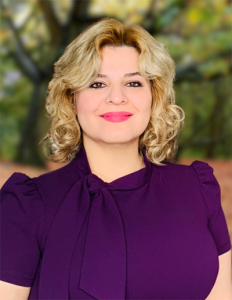Presented By: Center for Healthcare Engineering & Patient Safety (CHEPS)
Optimal Influenza Vaccine Distribution With Equity
Shakiba Enayati, Ph.D.

Influenza is a serious public health concern. Each year 5-15% of the world’s population is infected with influenza resulting in 3-5 million severe cases and 250,000-500,000 deaths. This presentation is concerned with the optimal influenza vaccine distribution in a heterogeneous population consisting of multiple subgroups. In our experiments, each subgroup corresponds to a set of people within an age group living in a certain geographic area, however the definition of subgroup is flexible. For example, healthcare workers or nursing home residents can be considered as subgroups in real life policy decisions. To characterize the spread of influenza through interacting subgroups, we employ an epidemic model that incorporates transmission dynamics and social distancing. The epidemic model is then coupled with a nonlinear mathematical program to find the critical vaccine allocation that minimizes vaccine usage. We also include an equity constraint to help public health authorities find a balanced vaccine allocation policy with respect to equity and effectiveness. Several detailed epidemic simulation models are developed in the literature to evaluate vaccination policies before their implementation so as to efficiently allocate resources. This study goes beyond evaluating a given vaccine allocation policy. The proposed approach can be utilized as a decision support tool to prescribe an equitable vaccine allocation policy to extinguish an emerging outbreak in its early stages. Furthermore, the optimal objective function value of our model can inform public health authorities about the amount of vaccine stockpiles needed to stop future outbreaks. Our results indicate that consideration of group-specific transmission dynamics is paramount to the optimal distribution of influenza vaccines.
Shakiba Enayati is an Assistant Professor in Supply Chain and Analytics Department in the College of Business Administration at the University of Missouri- Saint Louis. She earned her Ph.D. in Operations Research Program from North Carolina State University in May 2017. She also holds a Master of Science and a Bachelor in Industrial Engineering from Tarbiat Modares University and Iran University of Science and Technology in Tehran, Iran. She was previously employed as Assistant Professor of Analytics in Management, Information Systems, and Analytics Department at State University of New York, Plattsburgh. Shakiba’s primary research interests are in analytical modeling and optimization of stochastic/dynamic complex systems as applied to healthcare and service systems. Her goal is to address computational and operational aspects of problems arising in public health policy making, health systems management, and medical decision making via incorporating individual patient data. She is also interested in predictive analytics to evaluate, anticipate, and recommend actions for health outcomes at both individual and system levels. Her Ph.D. dissertation focused on service quality improvement and optimally allocating resources in the dynamic and stochastic environment of Emergency Medical Service systems under realistic operational restrictions.
This seminar series is presented by the U-M Center for Healthcare Engineering and Patient Safety (CHEPS): Our mission is to improve the safety and quality of healthcare delivery through a multi-disciplinary, systems-engineering approach. For the Zoom link and password and to be added to the weekly e-mail for the series, please RSVP. For additional questions, contact CHEPSseminar@umich.edu. Photographs and video taken at this event may be used to promote CHEPS, College of Engineering, and the University.
Shakiba Enayati is an Assistant Professor in Supply Chain and Analytics Department in the College of Business Administration at the University of Missouri- Saint Louis. She earned her Ph.D. in Operations Research Program from North Carolina State University in May 2017. She also holds a Master of Science and a Bachelor in Industrial Engineering from Tarbiat Modares University and Iran University of Science and Technology in Tehran, Iran. She was previously employed as Assistant Professor of Analytics in Management, Information Systems, and Analytics Department at State University of New York, Plattsburgh. Shakiba’s primary research interests are in analytical modeling and optimization of stochastic/dynamic complex systems as applied to healthcare and service systems. Her goal is to address computational and operational aspects of problems arising in public health policy making, health systems management, and medical decision making via incorporating individual patient data. She is also interested in predictive analytics to evaluate, anticipate, and recommend actions for health outcomes at both individual and system levels. Her Ph.D. dissertation focused on service quality improvement and optimally allocating resources in the dynamic and stochastic environment of Emergency Medical Service systems under realistic operational restrictions.
This seminar series is presented by the U-M Center for Healthcare Engineering and Patient Safety (CHEPS): Our mission is to improve the safety and quality of healthcare delivery through a multi-disciplinary, systems-engineering approach. For the Zoom link and password and to be added to the weekly e-mail for the series, please RSVP. For additional questions, contact CHEPSseminar@umich.edu. Photographs and video taken at this event may be used to promote CHEPS, College of Engineering, and the University.